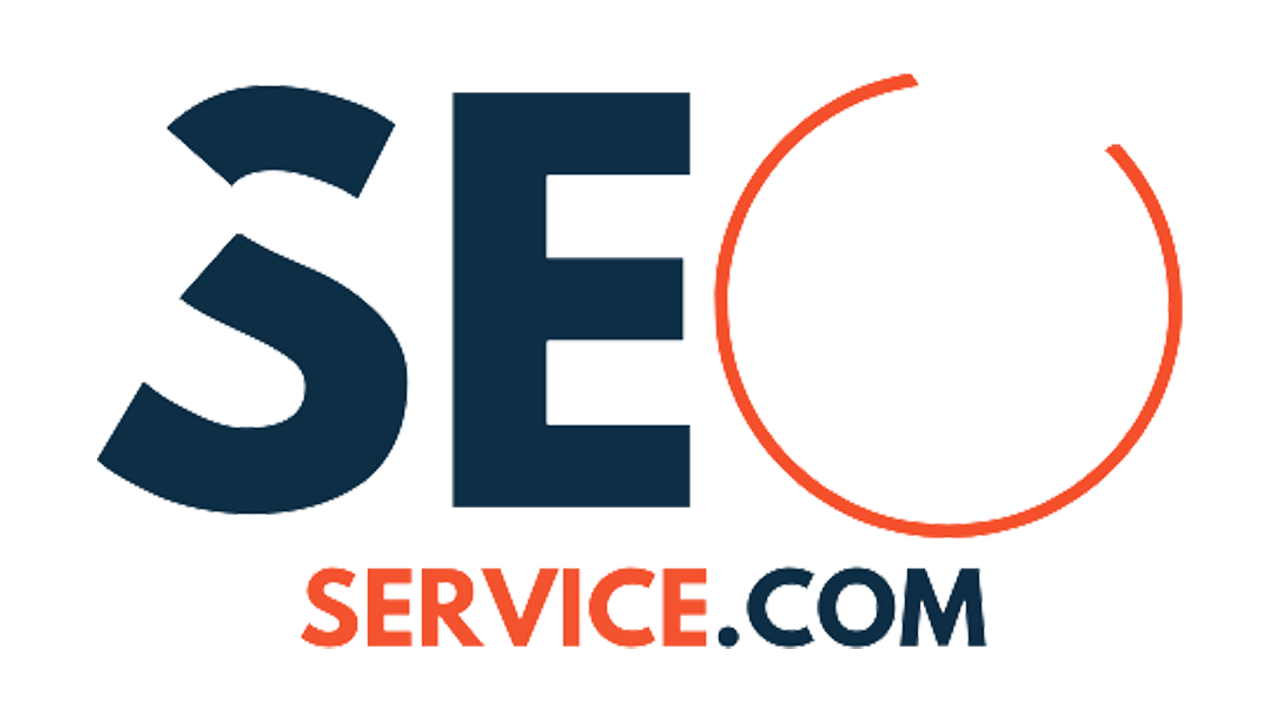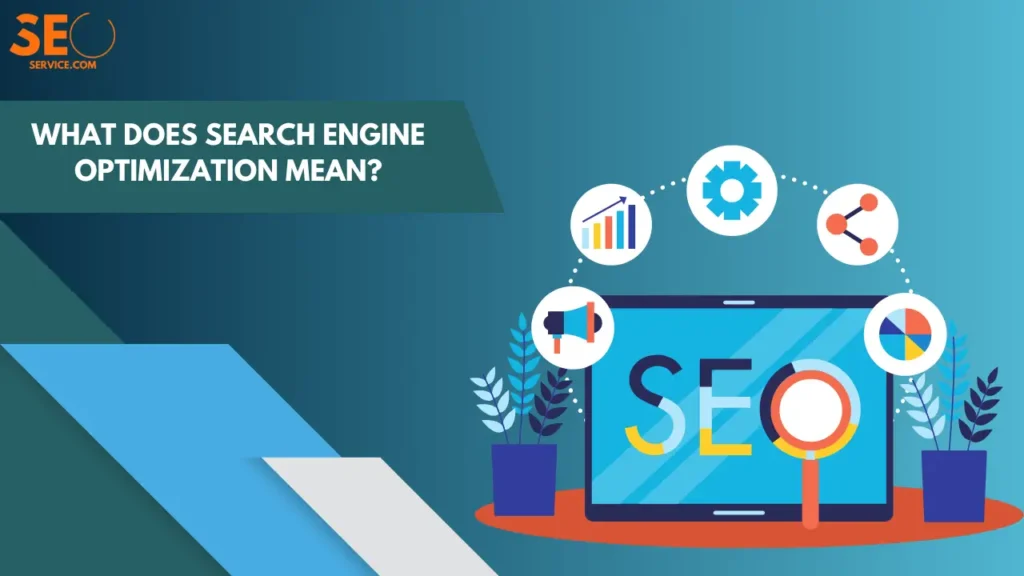What is Search Engine Optimization (SEO)?
Search engine optimization, commonly referred to as ‘SEO’, is the process of improving a website’s visibility in organic (non-paid) search engine results. This process, often encapsulated in the question ‘what does search engine optimization mean’, aims to increase the quality and quantity of a website’s traffic by having pages rank higher for relevant keyword searches.
In simple terms, SEO helps a website or web page appear among the top results displayed by a search engine like Google or Bing when users search for content related to the site. The higher a site ranks in search engines and the more prominently it is displayed – essentially answering the query ‘what does search engine optimization mean’ – the more likely users are to visit that site.
SEO is valuable for businesses and websites because higher rankings equal increased visibility, traffic, leads and sales. It is a crucial component of digital marketing strategies meant to grow awareness and usage of brands, products or services.
How Do Search Engines Work?
To understand SEO, it helps to first look at how search engines like Google operate. Search engines provide results for search queries entered by users. They survey and index the content of websites and web pages across the internet.
Advanced algorithms analyze aspects of this content – including words used, their frequency and location, formatting, media elements, structure, quality indicators and more. Billions of web pages are crawled, interpreted and ranked in search engine index databases based on relevance.
When a user enters a search query, the engine scans its index and delivers results pages it determines to be most appropriate, useful and authoritative based on the query. The quality and optimization of content plays a key role in search rankings.
Pages that best match user intent through relevance and value tend to achieve higher organic search visibility. SEO helps websites align with how search engines evaluate content to determine rankings.
Why Is SEO Important?
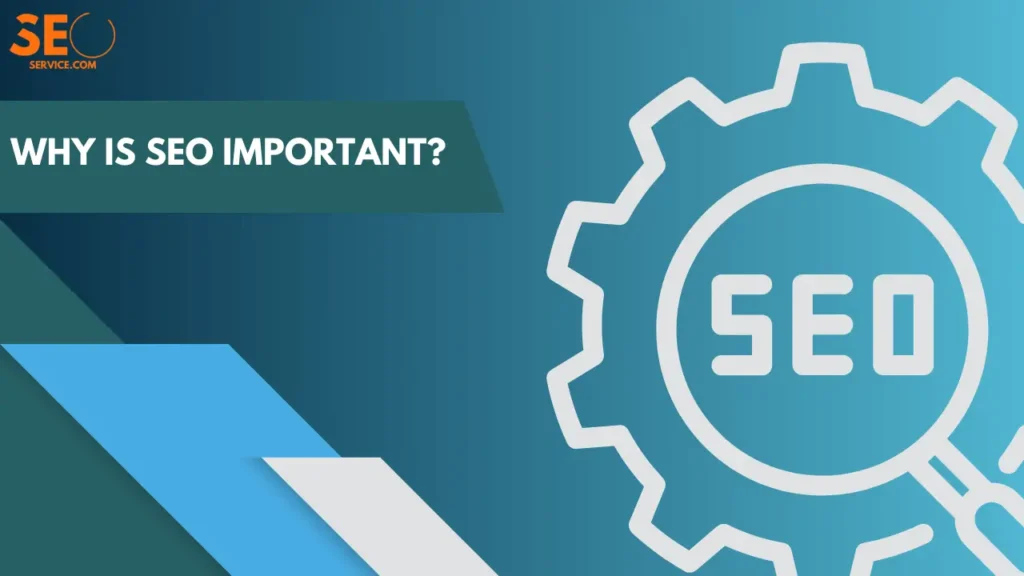
SEO is important because higher visibility in search engines directly correlates to increased traffic, brand awareness, qualified leads and sales. Since a majority of people use search engines like Google to research and find products or information online, ranking highly for relevant searches is critical for reaching target audiences.
Websites appearing on the first page of Google results get significantly more clicks and traffic. Thus SEO can deliver more visitors at a lower cost than other acquisition channels. Visitors from organic search are also more likely to convert compared to other sources.
SEO also reflects changing search behavior and interests. By optimizing content for popular queries, brands can connect with customers exactly when they are looking for related information or solutions.
Overall SEO success requires understanding both user intent through keyword research as well as search engine algorithms. Sites providing the most value through relevance and quality tend to sustainably outperform competitors.
Understanding Google’s Core Search Algorithm
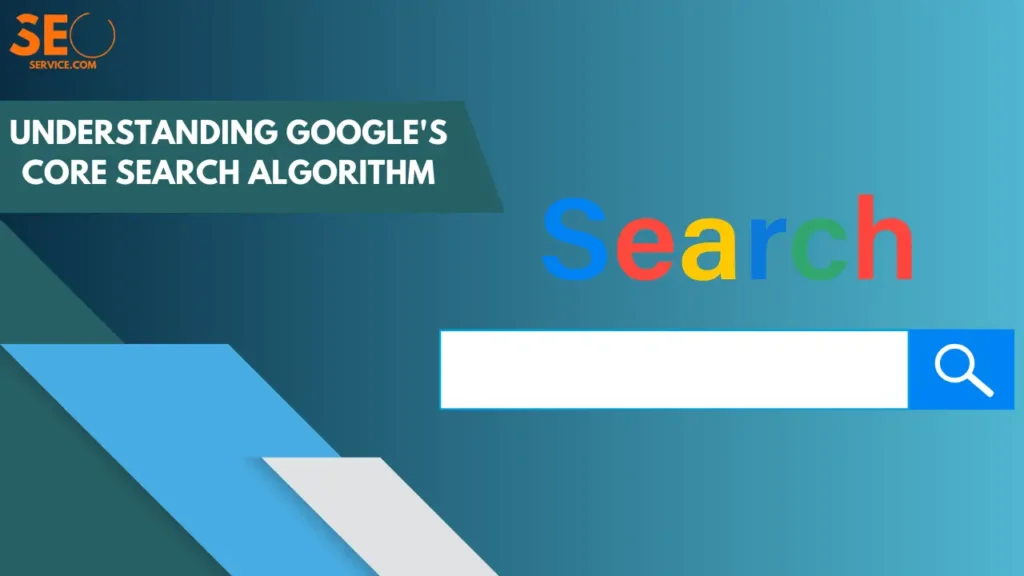
Google’s core search algorithm is a complex and sophisticated system that determines the rankings of web pages in its search results. While Google does not disclose the specific details of its algorithm to prevent manipulation, it has shared some general principles and factors that influence search rankings.
Reflecting User Intent Through Relevance
- Algorithm aims to understand intent behind search queries and provide most relevant results
- Focuses on giving users the most useful information quickly to satisfy needs
- Evaluates page content, media, structure etc. to determine relevance
Prioritizing Page Speed and Mobile-Friendliness
- Over 50% of searches happen on mobile devices so mobile-friendly pages preferred
- Faster page load times mean better user experience so also weighted heavily
- Enhanced mobile and site speed leads to lower bounce rates and more time on site
Valuing Expertise, Fresh Content and Safety
- Authoritative, up-to-date, accurate information favored to meet searcher needs
- Secure HTTPS websites given preference for safety and trust
- Evaluates site expertise and trustworthiness (E-A-T) to determine rankings capability
Adapting to Evolving Algorithm Updates
- Google frequently tweaks algorithm to improve search quality and combat manipulation
- Staying updated on changes and searcher behavior patterns is key for SEOs
- Sites focused on optimizing for relevance tend to sustain performance over time
Monitoring Algorithm Updates
- Understand intent and impact of algorithm changes on rankings
- Identify specific website elements to optimize for new priorities
- Assess opportunity areas and refinement needs
Reflecting Shifting Searcher Behavior
- Continually research target keywords and emerging queries
- Adapt content to match changing interests and expectations
- Optimize pages for each stage of buyer journeys
Core Elements of SEO
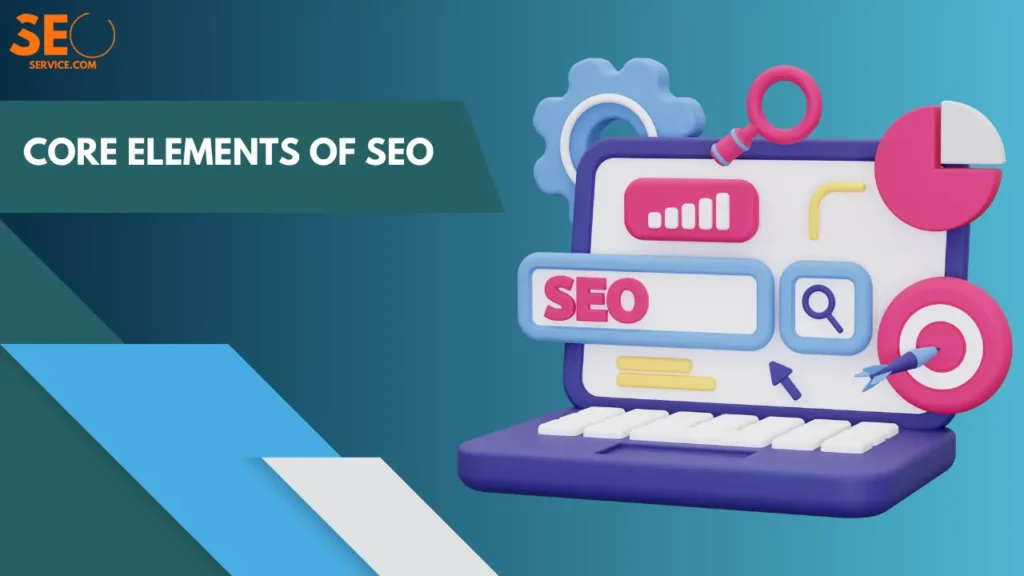
SEO can be divided into two broad categories – on-page and off-page optimization. On-page factors relate to elements within one’s control while off-page depends on external signals.
On-Page SEO For Website
On-page optimization refers to directly enhancing individual web pages and content assets like images, videos, headings, body text etc. to improve search visibility and rankings. This includes:
Content Optimization
Creating high quality, useful, engaging content using keywords that match user questions and intent.
URL/Page Titles
Including primary keywords in page URLs and titles.
Headings
Proper heading structure and hierarchy using keywords where suitable.
Alt Text
Relevant text descriptions for images to aid understanding.
Site Architecture
Easy site navigation through sitemaps, menus and internal linking structure.
Page Speed
Fast loading times through code optimization and efficient hosting.
Off-Page SEO For Website
Off-page optimization focuses on external signals and visibility factors including:
Backlinks
Earning links/mentions from relevant external websites to boost rankings.
Social Media
Engaging social media audiences to generate clicks and links.
Reviews / Ratings
Positive ratings and reviews build brand visibility and trust.
Local SEO
Optimization for local search rankings through factors like business info, locations and maps.
Brand Mentions and Citations
When your brand is mentioned across the web, whether or not it is accompanied by a link, it contributes to off-page SEO.
A balance of both on-page and off-page optimization creates the best environment for achieving higher search visibility.
Dynamic Nature of SEO
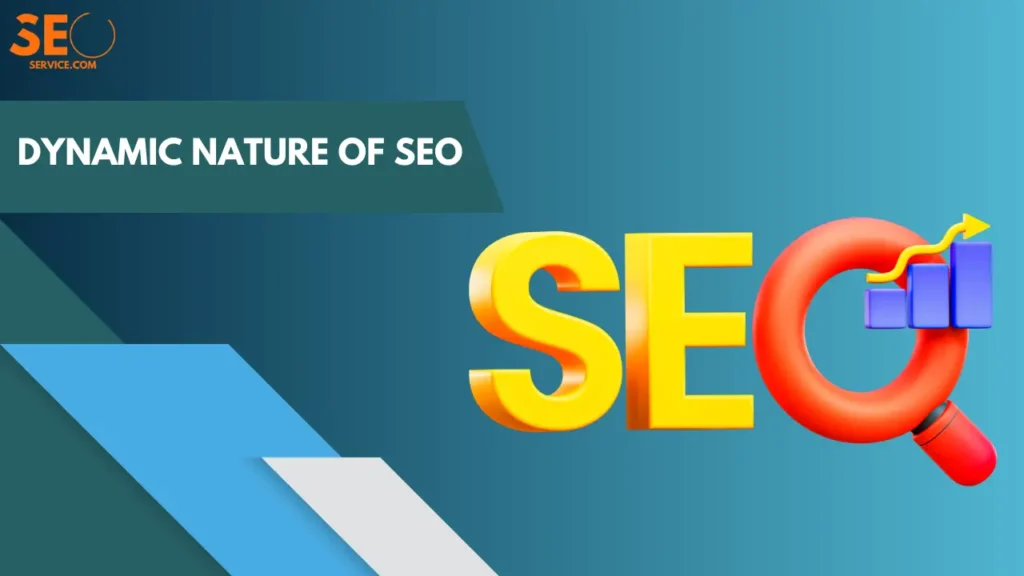
SEO is not static – it keeps evolving along with advances in search engine algorithms. As Google’s algorithm continues enhancing its ability to understand language and user intent, SEO strategies must adapt accordingly. Here is a detailed version explanation of dynamic nature of SEO:
Continual Algorithm Updates
Monitoring Core Algorithm Changes
– Google frequently rolls out updates to improve search quality and relevance
– Understanding intent and impact of changes is vital for SEOs
– Identify specific website elements to optimize for new ranking priorities
Adapting to Algorithm Iterations
– As the algorithm evolves so should SEO strategies
– Shift approaches to align with algorithm’s enhanced ability to evaluate pages
– Progress from keyword-focused to semantic optimization
Aligning With Search Behavior Trends
Responding to Emerging Platforms and Interfaces
– Exponential rise of voice search prompts speech optimization
– Visual platforms like Google Lens need content tailored for image search
– Expanded features change how people discover information
Reflecting Shifting Expectations and Interests
– Continually research target keywords and rising query trends
– Adapt content to match changing searcher needs and preferences
– Optimize pages for each stage of evolving buyer journeys
Sustainable Success Through Relevance
– Focus on optimizing for relevance and user experience
– Provide value through useful content instead of chasing rankings
– Iterative, user-focused approach leads to lasting growth
SEO as Part of Digital Marketing Strategy
While SEO aims specifically at improving organic search performance, it works hand-in-hand with other digital marketing channels as part of integrated strategies to maximize awareness and conversions.
SEO and Content Marketing
Content marketing involves creating and distributing valuable, relevant content to attract and engage clearly defined target audiences. It drives brand awareness and credibility. SEO is a key distribution channel for content by increasing search visibility which expands reach.
SEO and Social Media
Social media marketing focuses on engaging audiences on social platforms to boost awareness and loyalty. SEO and social media complement each other. Social signals like shares, links and engagement can enhance search rankings while higher SEO visibility means more referral traffic from search to social media pages.
SEO and PPC
Pay-per-click (PPC) advertising refers to sponsored search ads and online display advertising. SEO and PPC together provide a complete inbound methodology. SEO offers a free, organic channel while PPC ads help connect with audiences immediately through paid placement.
An integrated approach combining SEO with content, social and paid strategies maximizes awareness and conversions across both immediate and long-term timeframes.
SEO Trends and Innovations
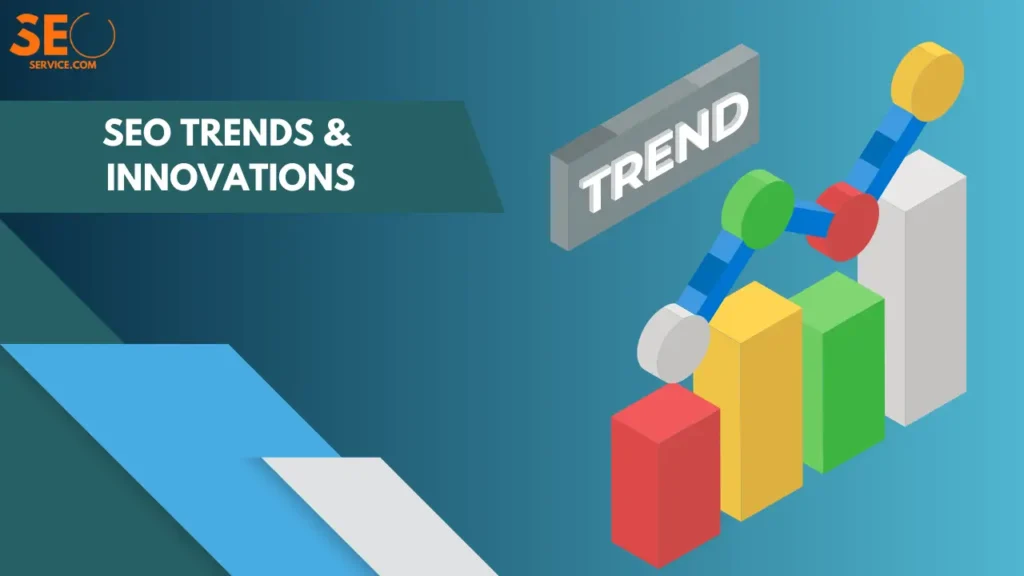
As online search behavior evolves over time, SEO needs to continually adapt as well. Some emerging trends shaping the future of search optimization include:
- Increased use of artificial intelligence guiding dynamic content recommendations, ad placements and budget allocation based on performance data
- Expanded search features like conversational queries, voice search and visual search changing how users discover information
- A shift towards omnichannel personalization with connected experiences across search, social media, display ads, email and more
- Continued growth of video, images and interactive content as the web becomes more visual
- Further optimization for mobile platforms and devices
- More focus on site speed and user experience factors like page load times and ease of navigation
- Greater emphasis on brand values, diversity and inclusion within content and optimization practices.
Should Businesses Invest in SEO?
For any business looking to sustainably grow online visibility and website traffic over time, investing in SEO is vital. Unlike paid ads that disappear once budgets stop, SEO delivers lasting results.
Higher search rankings mean ongoing brand exposure targeted specifically to those actively looking for your products or services – the most qualified potential customers. SEO drives conversions both directly and indirectly:
Direct Conversions
Visitors reaching a website through organic search have demonstrated clear purchase intent through their queries. By optimizing pages for each stage of the buyer journey using relevant keywords, sites can guide visitors to convert directly.
Indirect Conversions
Even visitors that don’t convert immediately still gain brand awareness for future purchases. Higher rankings strengthen credibility and trust as well. This increases indirect conversions over time.
When done right, SEO delivers a highly measurable, cost-effective source of qualified website traffic and conversions. It should be a core pillar of any modern digital marketing strategy.
Key Takeaways and Next Steps
SEO or search engine optimization refers to improving websites and content to achieve higher unpaid/organic rankings in search engines, which increases visibility and website traffic.With a majority of search engine users trusting top results and paying attention primarily to first page listings, ranking highly is essential for click-throughs. SEO never stops as search algorithms, competition and consumer interests keep evolving.
By focusing on both users’ search intent through keyword research as well as search engines’ evolving ranking factors, brands can build organic visibility over time instead of having to pay for each click. This sustainable approach is why SEO remains a critical component of digital marketing strategies globally.
For sites looking to uphold SEO, key next steps include:
- Conduct keyword research to identify relevant target terms and optimize pages for each stage of buyer journeys
- Create useful, engaging content that answers user questions and provides value
- Improve technical site structure and performance for better indexing and crawling
- Build credible external links through content promotion on social media and outreach
- Set up analytics tracking and measure KPIs like organic traffic, rankings, conversions
- Leverage data to refine approaches based on performance
Common SEO Mistakes to Avoid
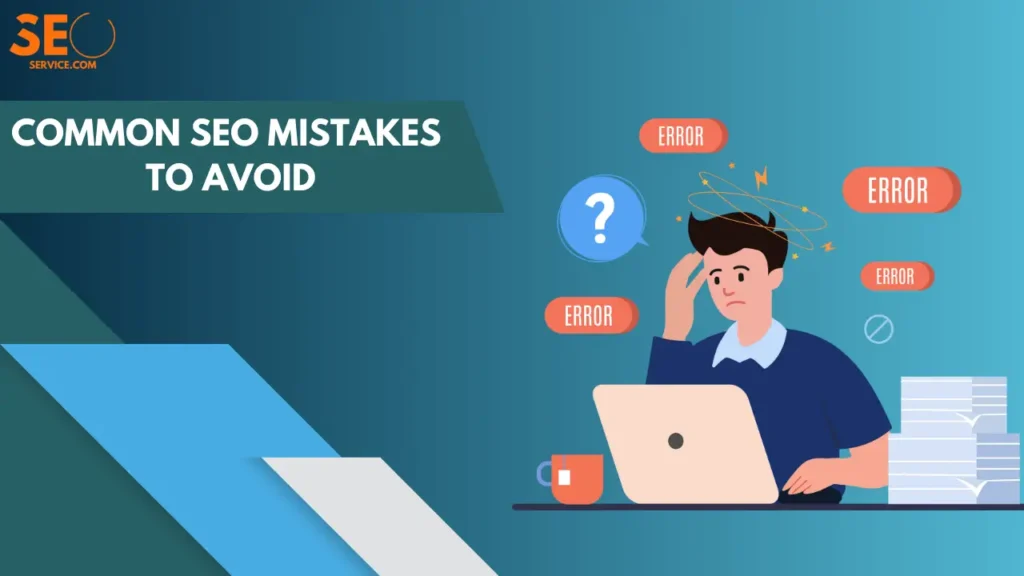
- Not conducting thorough keyword research to identify the right terms and topics to target. Choosing overly broad or competitive keywords can lead to poor rankings.
- Failing to optimize basic on-page elements like page titles, headers, meta descriptions, alt text, etc. These provide search engines critical clues about page content.
- Over-optimizing with excessive keyword stuffing that hurts readability. Striking the right balance of keyword density is key.
- Creating low-quality, thin content just to target keywords. Search engines favor original, useful, engaging content.
- Having a slow, mobile-unfriendly website. Site speed and responsiveness are now ranking factors.
- Overlooking internal linking structures. Interlinking related pages helps highlight site architecture.
- Focusing solely on backlinks from any source without considering quality. Relevant links from trusted sites carry more weight.
- Ignoring local SEO signals like business info, addresses, and location-optimized content when required.
- Not analyzing user behavior insights, engagement metrics or ROI to refine efforts.
- Failing to stay updated on algorithm changes and best practices. SEO evolves continually.
Assessing SEO Performance
- Track core metrics like organic traffic, rankings, impressions, click-through rates, and conversions over time. These indicate how visibility and user behavior are trending.
- Analyze user engagement metrics beyond vanity metrics to understand experience – time on site, pages per visit, bounce rates etc. High engagement signals you are fulfilling searcher intent.
- Set macro conversion goals in Google Analytics to quantify SEO’s impact. Monitor goal conversion rates from organic channels.
- Leverage tools like Search Console, Semrush, and Ahrefs to evaluate overall site health, technical factors, link profiles and content indexes that impact rankings.
- Run regular site audits to identify optimization opportunities – content gaps, technical issues, link building avenues etc. Addressing these can boost rankings.
- Do competitive analysis to compare your site’s performance across essential KPIs and identify strengths, weaknesses and gaps.
- Set specific SEO goals and track progress over time. Adjust strategies based on insights from measured data.
- Align SEO KPIs to broader business goals. Demonstrate SEO’s impact on pipeline and revenue to showcase ROI.
FAQs
1. How long does it take to see results from SEO efforts?
SEO is an ongoing process that requires consistency over an extended period to achieve results. While initial on-page optimizations may lead to minor improvements within 2-4 months, significant jumps in organic traffic generally take 6-12 months of concerted effort across both on-site and off-site factors.
2. Are paid advertisements necessary for good SEO?
No, paid ads and SEO are distinct strategies. Paid search delivers immediate visibility but requires recurring costs. In contrast, SEO focuses on earning high organic rankings through relevance and authority to drive sustained traffic without ongoing expenditure.
3. Is SEO a one-time effort or does it require maintenance?
SEO is an always-ongoing process rather than a one-time effort. From regular content optimization to adapting to algorithm changes, websites need consistent maintenance and iteration of strategies to sustain high organic visibility and traffic.
4. Are there penalties for violating SEO best practices?
Yes, violating established SEO guidelines around manipulation, over-optimization etc. can lead search engines to manually penalize pages with lower rankings or exclusion from results. This severely impacts visibility. Staying updated on ethical best practices is key.
Conclusion
As search engines continue advancing their ability to comprehend language and intent, SEO, or what does SEO mean, will increasingly prioritize solving user needs through relevant, valuable content experiences. Rather than over-optimize purely for rankings, brands must focus on providing utility, education, and entertainment that resonates with audiences. Companies that leverage search to sustainably grow traffic and conversions will be those that best inform and engage people in line with their interests and questions. The future of SEO belongs to brands that build expertise and trust by putting searchers first.
